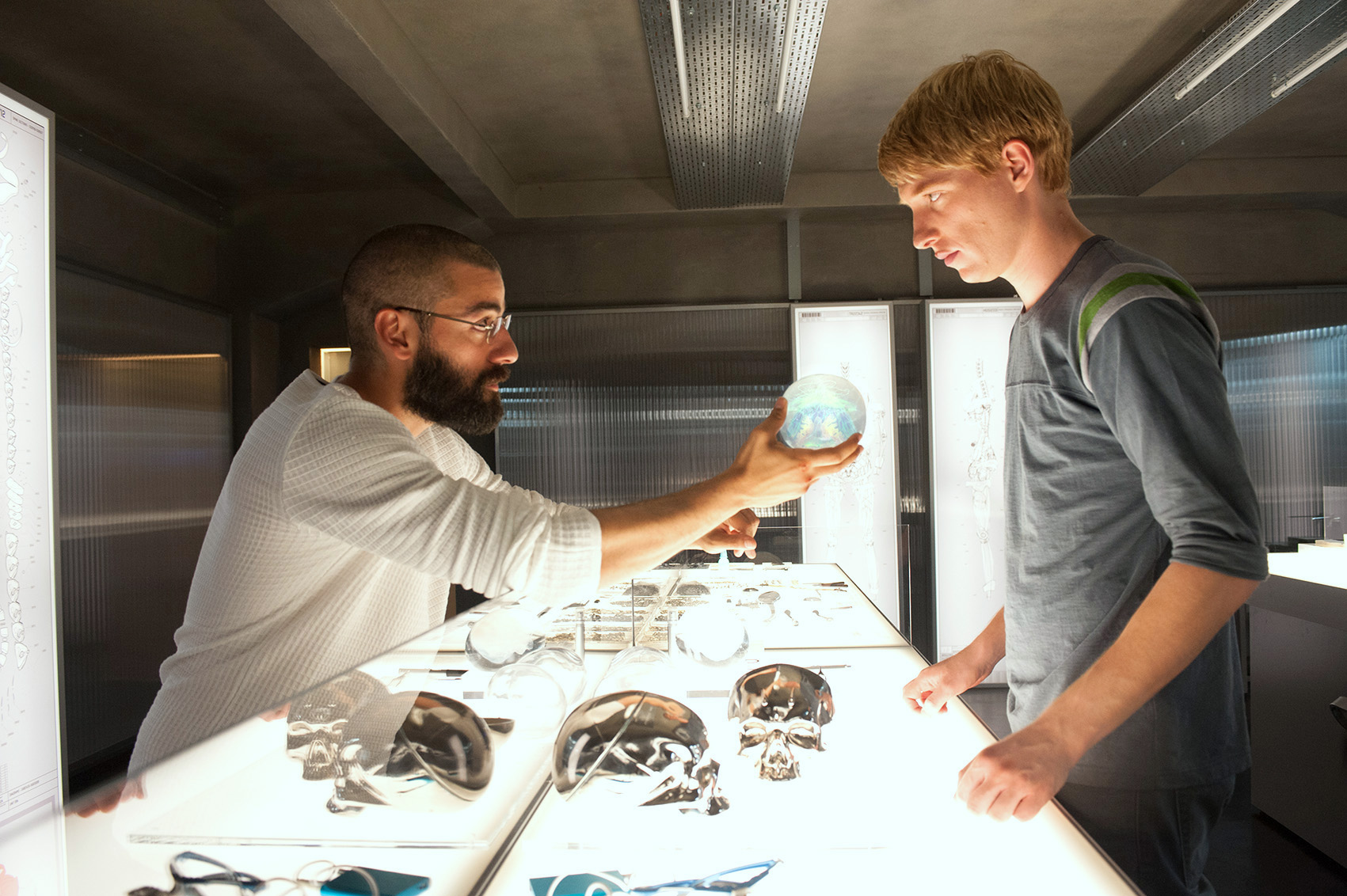When the histories are written years from now, our era will be defined by information technology in much the same way that the 1960s were defined by rock 'n' roll and social protest, or in the U.S., the '20s by Prohibition. People will look back with bewilderment at images of us — like we do at those strange '50s movie audiences in their 3-D glasses — incessantly stroking our phones in that compulsive and vaguely masturbatory way, head down, eyes glazed over, entirely disconnected from the world around us.
What's striking about this fetishistic attachment to personal tech is the way it has insinuated itself into not just our work, but also our lives, our memories, even our bodily functions. Yet with the exception of Spike Jonze's "Her" in 2013, no films have dared to examine the implications of advanced technophilia. With "Ex Machina," screenwriter Alex Garland's debut as a director, we now have a film for the zeitgeist.
On one level, "Ex Machina" is a taut sci-fi thriller of boy-meets-fembot, a claustrophobic mind game that will keep you guessing till the last reel. On another, it's the best exploration of what it means to be a self-aware machine in a world run by humans since "Blade Runner." Beyond that, it captures the hubris underlying Silicon Valley techno-evangelism, that self-aggrandizing belief in a utopia of intelligent machines, where "the singularity" is awaited like the rapture.



















With your current subscription plan you can comment on stories. However, before writing your first comment, please create a display name in the Profile section of your subscriber account page.